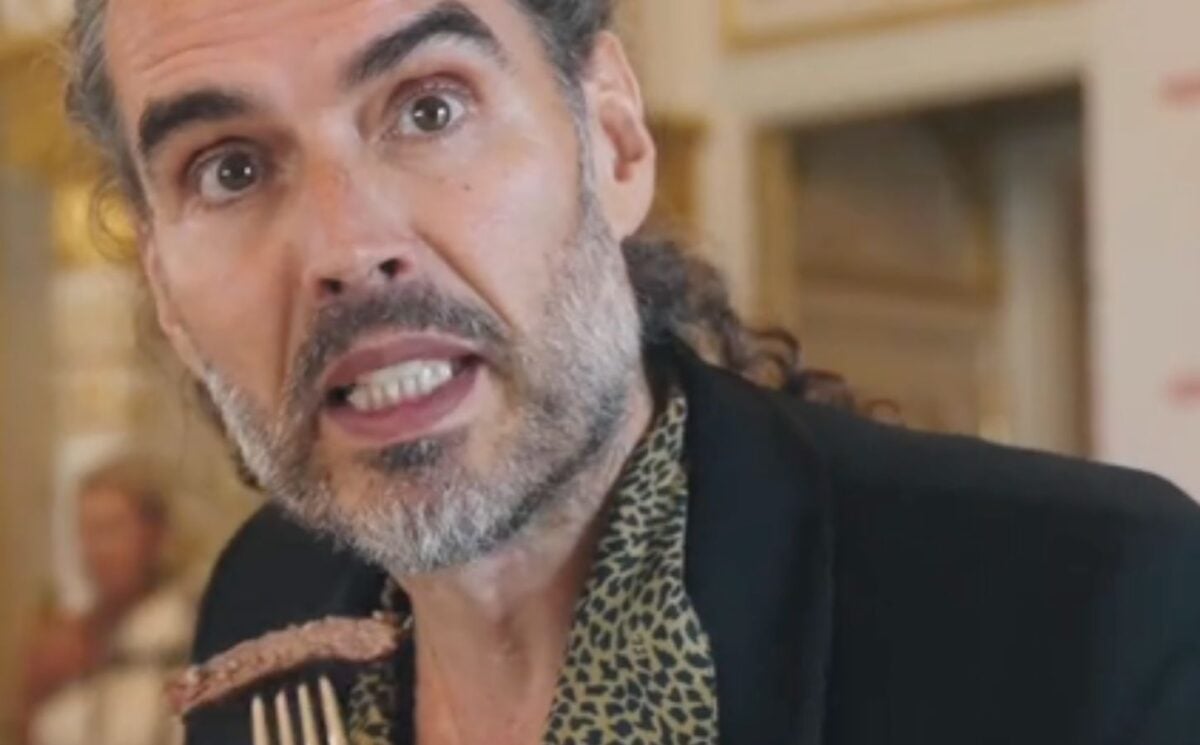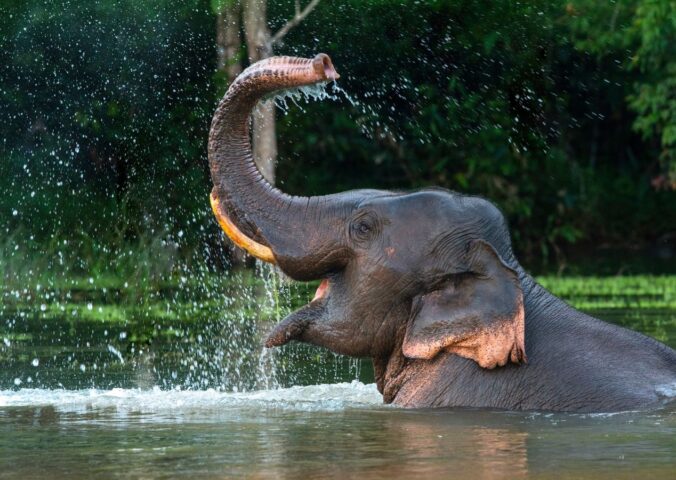Russell Brand, once a prominent advocate for veganism, recently announced that he had started eating meat again.
Read more: Ricky Gervais Says He Felt ‘Hypocritical’ Before Going Vegan
The UK-based comedian, who has become a widely controversial figure in recent years, headlined Vegan Camp Out in 2021 and was previously a well-known member of the plant-based community.
But, in a recent TikTok video, Brand said: “A little while ago, I was a vegan living a simple life in Grays, Essex. Now I’m eating steak at Mar-a-Lago.” Mar-a-Lago, the estate of US President-elect Donald Trump, was where Brand made this revelation, while also referencing dining companions such as Mel Gibson and Tucker Carlson.
When was Russell Brand vegan?
Brand’s journey into vegetarianism and later veganism began at the age of 14. Influenced by The Smiths’ album Meat is Murder, he cited ethical concerns about animal suffering and factory farming. Over the years, he spoke openly about these motivations, mentioning documentaries like What the Health, which highlights the health benefits of plant-based diets, and Simon Amstell’s Carnage, a satirical film envisioning a vegan future.
During this time, Brand identified with both health and ethical aspects of veganism, expressing concerns about animal exploitation and environmental sustainability. He often referenced a desire to reduce harm to animals and adopted a plant-based diet as part of his lifestyle.
In 2021, Brand was celebrated for his support of veganism when he headlined Vegan Camp Out, a UK festival that promotes veganism through music, activism, and education. His advocacy at the time was widely embraced within the vegan community.
Read more: Jeremy Clarkson Says He ‘Doesn’t Particularly Like’ Sending Animals To Slaughter
The Shift Away from Veganism
Brand’s transition away from veganism has drawn attention due to its timing with other changes in Brand’s life. In addition to his TikTok admission, Brand appeared on a podcast with Michaela Peterson, a carnivore diet advocate. During the interview, he confirmed: “I’ve gone from being vegan to eating meat… quite a lot.”
The decision follows Brand’s association with people and platforms critical of plant-based diets. Figures like Jordan Peterson, Michaela Peterson, and Joe Rogan have been vocal opponents of veganism, often promoting low-carb or carnivorous diets. Brand’s appearance on such platforms coincided with a shift in his perspectives on nutrition and lifestyle.
In a recent video on Brand’s shift away from veganism, YouTuber Mic the Vegan noted the timing of his dietary change. “There’s a direct connection with him being socially involved in that lot, that community, and him making that lifestyle shift,” he said. “Over time, these straws broke the camel’s back… to use a very non-vegan analogy.”
Brand’s Broader Ideological Transformation
Brand’s departure from veganism parallels significant shifts in his personal and public beliefs. Formerly celebrated for his progressive stances, Brand gained popularity for encouraging political engagement among disillusioned youth. However, since around 2020, his rhetoric has increasingly focused on alternative spirituality, conspiracy theories, and right-leaning narratives.
“Since COVID or so, there’s been just a complete 180 in terms of his belief system and what he’s talking about,” said Mic.
Public and Community Reactions
The vegan community, which once embraced Brand as an ally, has reacted strongly to his recent revelations. His departure from the movement has also raised questions about the sustainability of celebrity advocacy.
In a Plant Based News social media post about the news, many people expressed their view that Brand was never truly vegan in the first place. Veganism is a movement against animal exploitation, and a lifestyle choice rather than a simple diet. Many celebrities adopt a plant-based diet on health grounds, then go on to reintroduce animal products and publicly denounce veganism, which is regarded as a growing problem by many in the community. “No idols. Period,” wrote one commenter. “Veganism should be spearheaded by real people making real thoughtful changes to their own lives and communities.”
The timing of Brand’s announcement, particularly at Mar-a-Lago, has amplified its impact. Mar-a-Lago is often associated with conservative and anti-vegan viewpoints, which further fueled discussions about Brand’s ideological realignment. Many have speculated that exposure to anti-vegan arguments, combined with shifting social circles, may have influenced his decision. “Obviously he wasn’t doing it for ethical reasons or he wouldn’t go back to animal violence for the acceptance of American politicians,” wrote another. “Let’s make veganism about the animals again.”
Read more: Doctor Responds To Bear Grylls’ Claim That Farting Isn’t Healthy






